Jemonde Taylor recently experienced a remarkable string of successes. It started on Sunday, Sept. 25, when he celebrated his 10-year anniversary as rector of Saint Ambrose Episcopal Church in Raleigh, North Carolina. The following day, the Diocese of New York announced that Father Taylor is one of five candidates for bishop. By midweek he was in Sewanee at the School of Theology awards banquet, which was packed with seminary and Education for Ministry alumni, being applauded for his outstanding service to The Episcopal Church.
The recipient of the School’s 2022 Award for Service, Father Taylor was recognized for extraordinary achievements in two categories: social justice and creation care. “We are deeply moved by your work at the intersection of these two imperatives,” Jim Turrell, dean of the School of Theology, wrote in the award letter, “in your environmental justice work at Saint Ambrose, as well as your related work in promoting racial equity.”
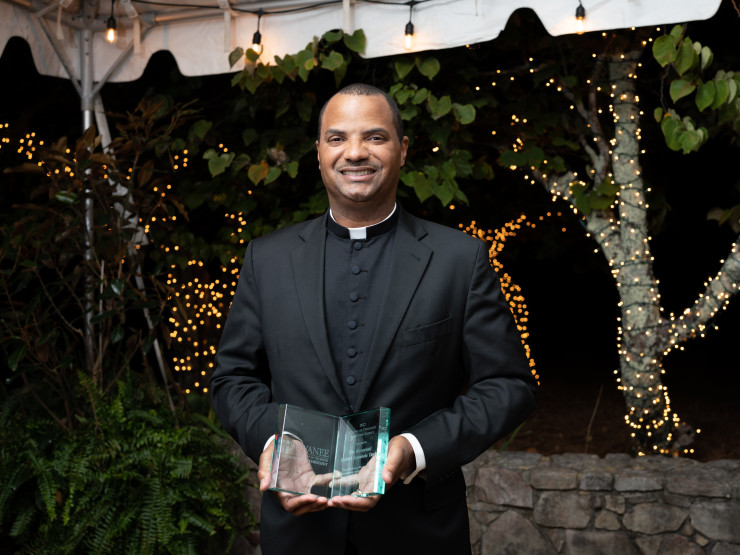
Father Taylor at the School of Theology Awards Banquet
A priest in the Diocese of North Carolina, Taylor serves as the eleventh rector of Saint Ambrose, which sits in the Walnut Creek Wetland. Known as ground zero for environmental racism in the United States, the city of Raleigh had been dumping sewage there for 80 years, and garbage for 50 years. The wetland was zoned for Black people in 1956. “Because of the proximity and the degradation from sewage and dumping, the wetlands did not function properly, and flooded properties,” Taylor explains. “Houses were washed off their foundations. This was the area designated for Black people to live.”
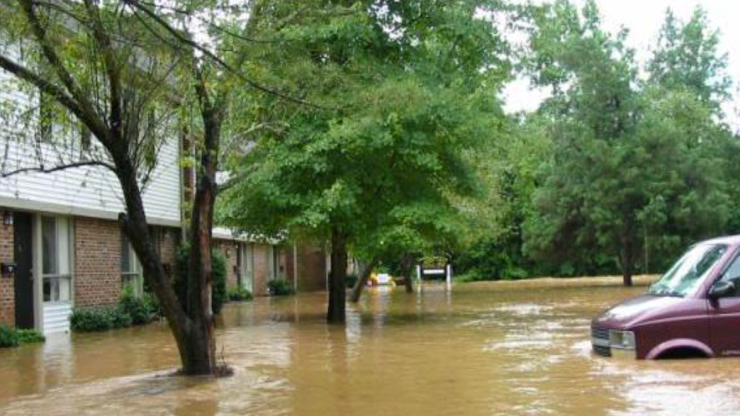
FloodWaters rise 200 feet from Saint Ambrose Episcopal Church
To Taylor, environmental justice and racial equality go hand in hand. Growing up on the Thomas-Taylor Farm in Franklin County, North Carolina, he did not have the luxury of separating the two. His ancestors were enslaved and forced to work the land for over 75 years. At the end of the Civil War, the newly emancipated Dodd Thomas went to the owner of the property, North Carolina Senator and member of the General Assembly John Thomas, and asked to purchase fifteen acres. Little by little, the descendants of Dodd Thomas added to the purchase and farmed the land. Jemonde Taylor represents the seventh generation of those descendants who grew up on the farm, which now grows wheat and soybeans.
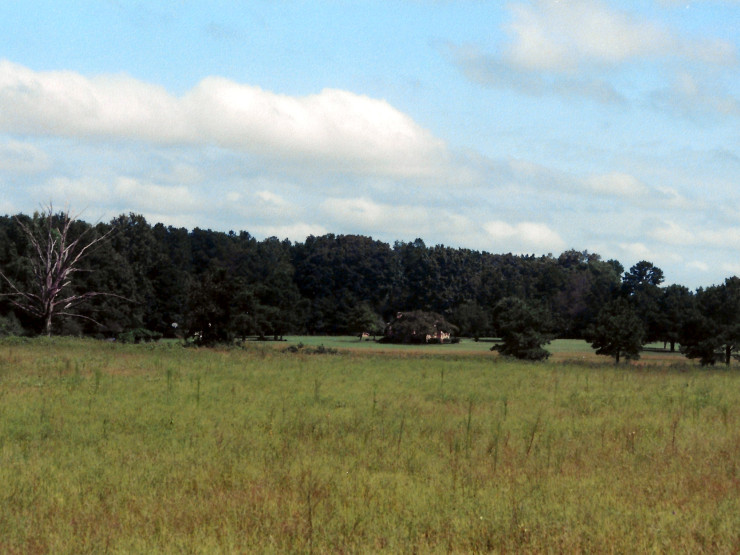
The Thomas-Taylor Farm in Franklin County, North Carolina
“The land in my family is a personified family member,” says Taylor. “The land holds the bodies of our ancestors going back to the 1880s.” Earlier this year, Taylor discovered a slave cemetery on the property, and has applied to have it added to the national registry. He says, “When we talk about the land, we are talking about a living, breathing member of the family.”
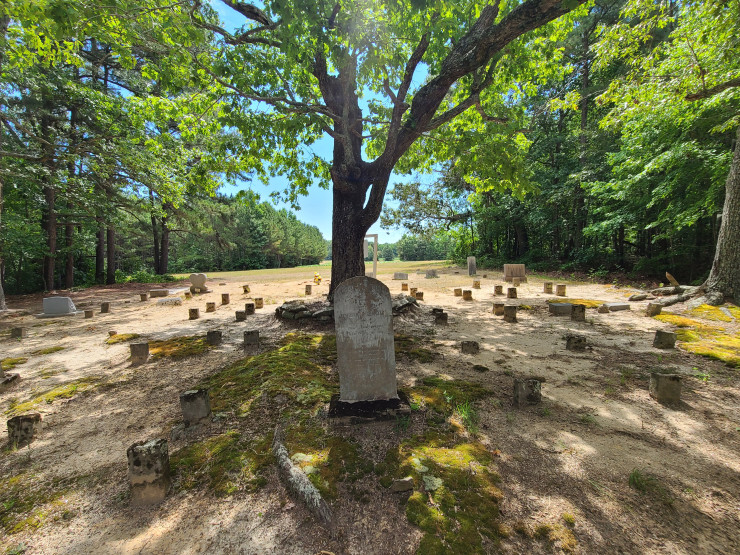
Slave Cemetery on the Thomas-Taylor property
Taylor carries these convictions about people and land into his church work at Saint Ambrose, while approaching the challenge of the Walnut Creek Wetlands and environmental racism from many angles. Take for example, The Healing Pod project, for which Saint Ambrose received a Creation Care Grant from The Episcopal Church. The project entails a combination of mental health counseling, a therapeutic garden, a labyrinth, and a podcast (Wading Deep, which launches in October). Citing the long history of racial and environmental injustice experienced at the parish, the grant seeks to “expand the legacy of resilience at Saint Ambrose and the surrounding community through care of the community and reclamation of God’s creation.”
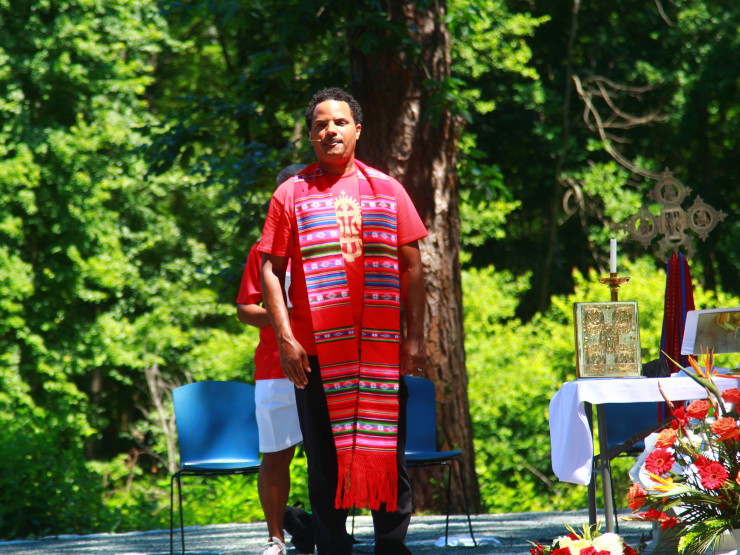
Father Taylor Gives the Outdoor Labyrinth Blessing
Taylor refers to the wetland as the church’s “closest neighbor.” In that spirit, the church has taken on the cleaning and care of the wetland, now zoned as a protected area. Taylor says they always make sure the church and community are represented on the parks and recreation committee. For example, Taylor currently chairs the Raleigh Stormwater Management Advisory Commission (SMAC), which has oversight of a $12 million budget. “I looked at the commissioners and there was no one from southeast Raleigh, yet they were making policies that impacted southeast Raleigh.” Taylor applied and was appointed to the commission that he now chairs, modeling the deep civic involvement that is characteristic of Saint Ambrose.
In 2020, Taylor also started a local Industrial Areas Foundation (IAF) affiliation, ONE Wake. To date, the affiliation brings together fifty nonprofit organizations for an aggregate membership of 50,000 individuals. The first effort of ONE Wake was to resist one of the largest developers in the Southeast, who had proposed a 150-acre development just 3,000 feet upstream from the church. The developer was intent on razing 80 acres of forest, which combined with the large amount of asphalt paving planned for the development, would flood the church and the community with stormwater runoff. ONE Wake negotiated a $2.5 million grant matching fund to mitigate flooding offsite. Many provisions were added to the rezoning document for green stormwater infrastructure (GSI), low impact development (LID), and seeking to keep runoff on site.
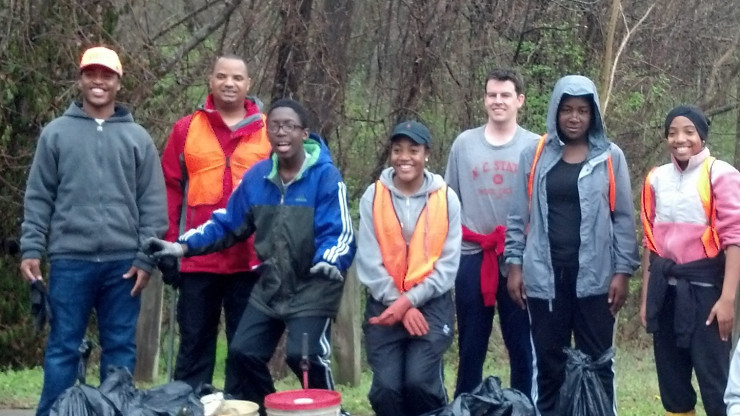
Saint Ambrose community members Lead Effort to clean up wetlands
Taylor says his extensive civic involvement is not unusual. “The Black church tradition, in all denominations, has a legacy of being active in the community.” Indeed, that has been the case with Saint Ambrose. Previous rectors served on the city council and were instrumental in civil rights efforts. The rectory was a meeting place for the NAACP and other leaders to strategize against segregation. Taylor traces the civil service of Black priests back to the original definition of a parish. “It’s going back to the view of the parish being not a building, but a geography. The parish is the area we serve, not just one congregation. God has placed congregations geographically where they will be sites of resurrection.”
By Jeannie Babb, T’12 and T’13
